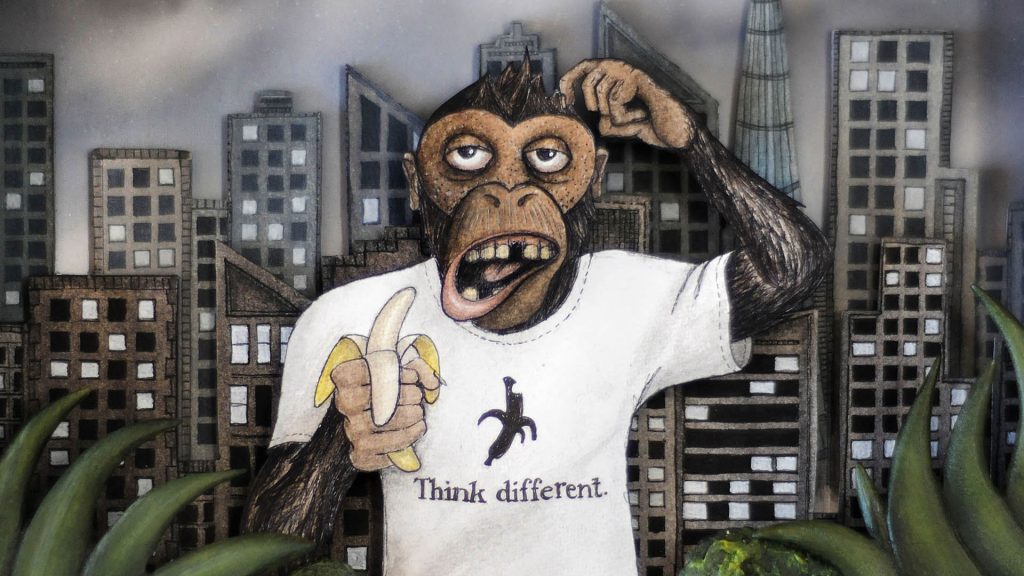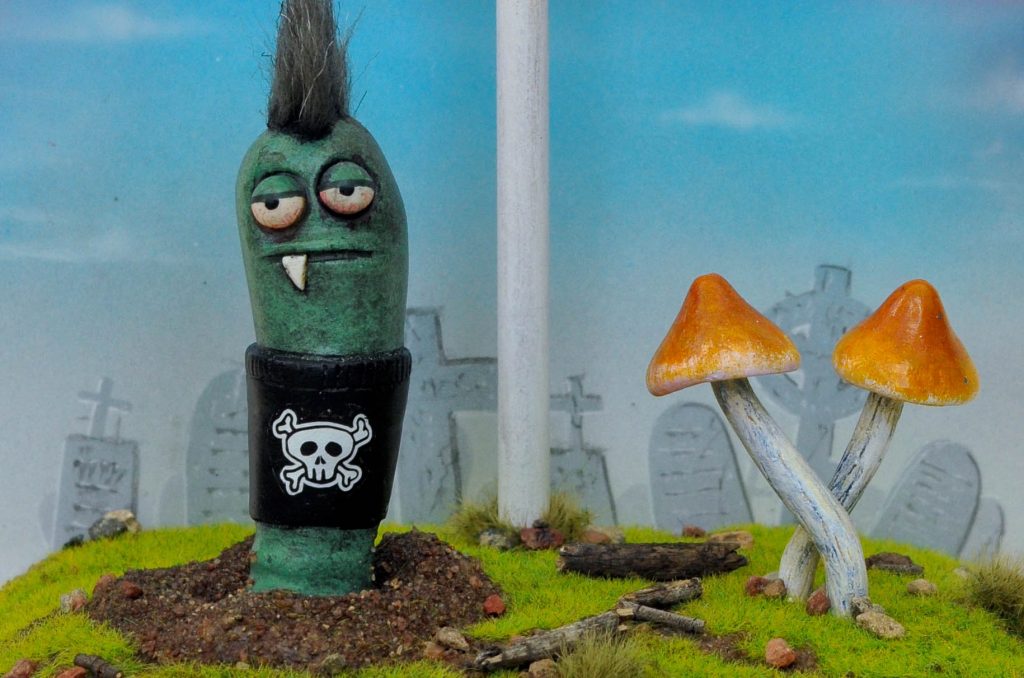“No pestilence had ever been so fatal, or so hideous. Blood was its Avatar and its seal. The redness and the horror of blood.”
Edgar Allan Poe’s The Masque of the Red Death is a haunting allegory of mortality, inescapable fate, and the illusion of control. Prince Prospero, in his desperate attempt to shut out the horrors of the plague, constructs a lavish refuge – an opulent fortress of indulgence and denial. Yet no amount of wealth or revelry can barricade death itself.
Beyond its allegorical weight, the story invites a deeper examination of Poe’s own psyche. His struggles with loss, addiction, and existential dread mirror Prospero’s doomed revelry. In a moment of rare self-reflection, Poe confessed:
“I have absolutely no pleasure in the stimulants in which I sometimes so madly indulge. It has not been in the pursuit of pleasure that I have periled life and reputation and reason. It has been the desperate attempt to escape from torturing memories, from a sense of insupportable loneliness, and a dread of some strange impending doom.”
These words reveal a man haunted by forces beyond his control, much like Prospero’s futile attempts to outmaneuver fate. His personal torment echoes through the story’s imagery – the masquerade, the seven rooms, and the final, unavoidable confrontation with the Red Death.

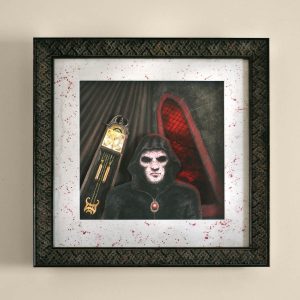
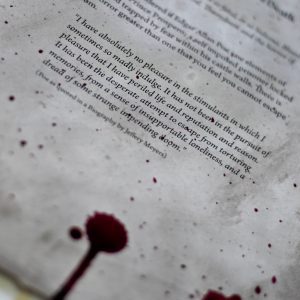
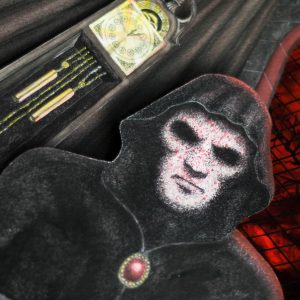
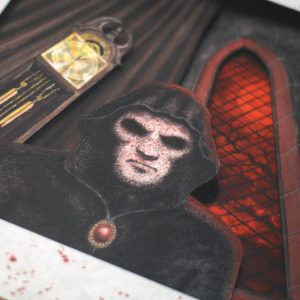
This sense of inescapable doom is reflected in the artwork. A central hooded figure looms with a stern countenance, its blood-speckled face evoking both menace and inevitability. To one side, a window floods the room with an ominous red glow, staining the space with the same dread that permeates Poe’s tale. A tall grandfather clock stands as a solemn witness, its presence a relentless denouncement of time’s passage, ticking toward an unavoidable fate. The composition captures the atmosphere of dread, balancing decadence with decay, beauty with horror.
Ultimately, The Masque of the Red Death is not just a tale of mortality but a warning against the inevitability of time and the illusion of control. Prospero sought to defy fate, but through denial, he became a self-imposed prisoner long before the Red Death ever arrived.
